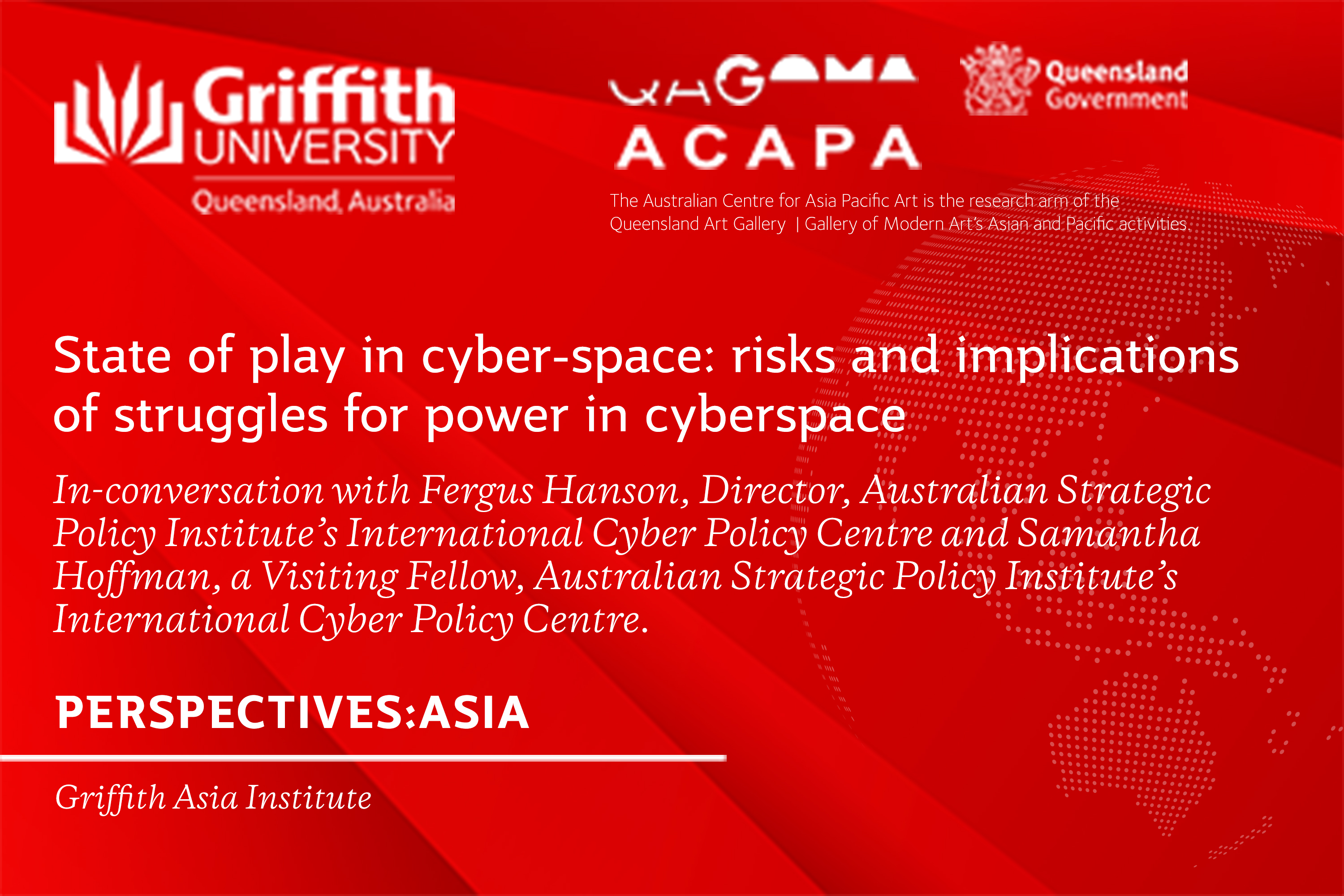
Principal speaker
Mr Fergus Hanson and Ms Smanatha Hoffman, Australian Strategic Policy Institute’s International Cyber Policy Centre
In-conversation with Fergus Hanson, Director, Australian Strategic Policy Institute's International Cyber Policy Centre and Samantha Hoffman, a Visiting Fellow, Australian Strategic Policy Institute's International Cyber Policy Centre.
Nation states around the world are investing heavily in new cyber capabilities with serious implications. There are obvious consequences: single cyberattacks are now able to cause billions of dollars of damage to companies. As we connect more and more physical systems like cars and factories to the internet, we've only narrowly escaped the first deaths and serious injuries from cyber-attacks, but they are unfortunately coming. And if the 5G telecommunications network lives up to its promise, its security will become the top priority of all governments as every major system in our economy and society comes to depend on it.
There are also less visible struggles for power among nation states. Espionage is now conducted at an industrial scale online. Some states, like China, are building their economies off the back of the wholesale theft of intellectual property. Surveillance technologies are being perfected in authoritarian states and exported around the world, disrupting traditional pathways to democratization. And smart cities are promising to make our lives easier but are also being built with a view by some states to shape their external environment. Often, the issue of the export and import of technologies to and from illiberal regimes is narrowly focused on issues like espionage, when in fact a broader framework is needed.
Fergus Hanson is the Head of the International Cyber Policy Centre. He is the author of Internet Wars and has published widely on a range of cyber and foreign policy topics. He was a Visiting Fellow at the Brookings Institution and a Professional Fulbright Scholar based at Georgetown University working on the uptake of new technologies by the US government.
He has worked for the UN, as a Program Director at the Lowy Institute and served as a diplomat at the Australian Embassy in The Hague. He has been a Fellow at Cambridge University's Lauterpacht Research Centre for International Law and the Centre for Strategic and International Studies, Pacific Forum.
Samantha Hoffman is a Fellow at the Australian Strategic Policy Institute's International Cyber Policy Centre, a Fellow at China Forum, and independent consultant. In 2018, she was a Visiting Fellow at the MERICS in Berlin. She also worked as a consultant for the IISS (2012-2018) and IHS Markit (2012-2017). Her research explores the domestic and global implications of the Chinese Communist Party's approach to state security. The research offers new ways of thinking about how to understand and respond to China's technology-enhanced political and social control efforts. Dr. Hoffman holds a PhD in Politics and International Relations from the University of Nottingham (2017), and an MSc in Modern Chinese Studies from the University of Oxford (2011), and BA degrees in International Affairs and East Asian Languages & Cultures from the Florida State University (2010).
Event categories
RSVP
RSVP on or before Friday 13 September 2019 , by email events-gai@griffith.edu.au , or by phone 07 3735 4705
Event contact details
- Kahlia Bartley
- events-gai@griffith.edu.au
- 07 3735 4705